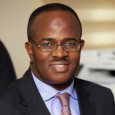What has changed for Nasdaq over the past year, particularly in regard to sustainability?
Internally, Nasdaq has made significant strides in our sustainability efforts. As an example, we have had our emission targets approved by the Science Based Targets initiative, and our efforts have been recognized by various third-party organizations. Externally, the macroeconomic environment has been turbulent, with the fastest increase in interest rates in modern history affecting global economies. This has had a ripple effect on sustainability investments. For instance, while there is still strong activity in the voluntary carbon market, growth has been slower due to general economic uncertainties.
Has not the crisis in Ukraine resulted in greater investments in green projects?
Yes, crises like the one in Ukraine have pushed the issue of energy security to the forefront, leading to increased public funding for renewable energy and carbon removal projects. While economic uncertainties have impacted private sector investments, I believe this downturn is temporary. There is still a continuous effort to develop sustainable businesses. A combination of public and private capital is crucial for scaling up large-scale opportunities, especially in engineered carbon removals that offer net negative emissions.
How does the ESG environment in Europe differ from that in the United States?
In general, Europe, particularly the Nordic region, has been pioneering sustainable innovations, such as sustainable bonds and market regulation around ESG reporting. The U.S. is not far behind, as it has shown a rapid increase in activities, fueled by public incentives like the Investment in Renewable Energy Act (IRA). Also, Europe's multi-country, multi-tax regime landscape makes a unified approach challenging as compared to the U.S.
Are you an advocate for a global ESG disclosure standard?
There is a need for global transparent disclosures to support both corporates and investors. A lot of good work has been done under the International Financial Reporting Standards Board to align reporting standards globally. A harmonized global framework will benefit not just the corporates but also the investors who are looking for consistent data points.
Is ESG seen necessarily as a cost by investors? Or is this paradigm changing already?
ESG should be viewed as an economic opportunity. While return on investment remains paramount, sustainable businesses have better access to long-term capital and talent, which is essential for growth. It is a misconception to see ESG merely as a cost; it is an integral part of a company’s sustainable journey.
What is Nasdaq's role in encouraging sustainable investments?
At Nasdaq, we see our role as a facilitator. We want to support our clients’ success across the global economy, acting as a bridge between key market constituents — from asset owners to corporates — as they navigate the complexity of an evolving ESG landscape.
Could you briefly introduce Puro.earth and its acquisition by Nasdaq? How do you address concerns about the potential for greenwashing in the carbon market?
Puro.earth was founded in 2019 as a groundbreaking carbon crediting platform and registry, primarily focused on engineered carbon removals that sequester carbon dioxide from the atmosphere for a minimum of 100 years. In 2021, Nasdaq acquired a majority stake in the company, and we have jointly invested in creating a transparent and credible carbon market. The aim is to channel financing towards the most promising large-scale technologies for net-negative emissions.
Regarding concerns about greenwashing, it is an issue that has indeed been debated widely. We fully support initiatives such as ICVCM, the Core Carbon Principles, and ICROA. Technology plays a crucial role in providing transparency and connecting local and global infrastructures. To counter greenwashing effectively, the focus should be on integrity, enhancing transparency, leveraging data, and deploying technology.
What do you hope to achieve within the next year, and what can we expect when we speak to you again?

The carbon market, despite its 30-year history, is at an inflection point, transitioning into a new phase that is focused on integrity and transparency.
Our ongoing efforts aim to build a market that can be trusted over the long term. In a year from now, I hope we can discuss tangible developments in building that trust and credibility in the market. The goal is to also see significant improvements on the supply side, particularly in scaling carbon removals. Within Puro.earth and Nasdaq, we are committed to delivering on engineered carbon removals, and that will remain our focus. We aim to be at a point where we can clearly demonstrate progress in the next 12 months.






